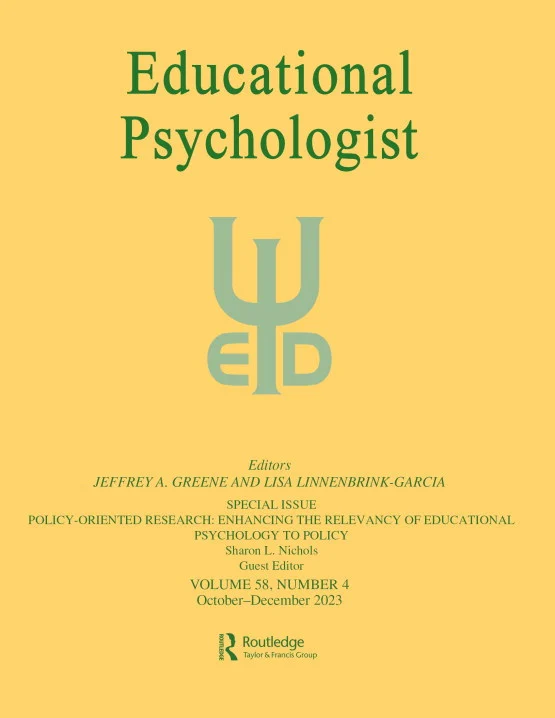对反驳文本文献的批判性回顾:方法论上的混淆、理论问题和可能的解决方案
IF 11.4
1区 心理学
Q1 EDUCATION & EDUCATIONAL RESEARCH
引用次数: 24
摘要
摘要反驳文本是一种旨在减少误解的修辞工具,在四十年的许多研究中引起了人们的注意。然而,一篇反驳文章改变学习者对一个话题的看法的能力需要是合格的和调节的。在这篇批判性的评论中,我们关注了经常被反驳文本研究者忽视的约束来源。我们确定的方法问题集中在在研究中使用单一主题(或很少主题)的问题,测试在概念变化中的作用,以及超越立即后测试的变化的持久性。理论问题包括对注意力测量的解释,哪些知识领域适合反驳,什么使文本反驳,以及关于概念变化如何发生的未探索的假设。我们试图澄清反驳文本如何作为误解的解毒剂,以及未来对反驳文本的研究如何更好地为理解这一现象提供信息。本文章由计算机程序翻译,如有差异,请以英文原文为准。
A critical review of the refutation text literature: Methodological confounds, theoretical problems, and possible solutions
Abstract Refutation texts, rhetorical tools designed to reduce misconceptions, have garnered attention across four decades and many studies. Yet, the ability of a refutation text to change a learner’s mind on a topic needs to be qualified and modulated. In this critical review, we bring attention to sources of constraints often overlooked by refutation text researchers. Methodological issues we identified centered on problems of using a single topic (or very few) within a study, the role of testing in conceptual change, and the durability of change beyond an immediate posttest. Theoretical issues included the interpretation of attentional measures, what knowledge domains lend themselves to refutation, what makes a text refutational, and unexplored assumptions about how conceptual change occurs. We sought to clarify how refutation texts may function as an antidote to misconceptions and how future research on refutation texts can better inform understanding of this phenomenon.
求助全文
通过发布文献求助,成功后即可免费获取论文全文。
去求助
来源期刊

Educational Psychologist
Multiple-
CiteScore
19.10
自引率
3.40%
发文量
16
期刊介绍:
The Educational Psychologist is a scholarly journal dedicated to exploring the psychology of learning and instruction. Articles in this journal encompass a diverse range of perspectives, from examining psychological mechanisms to exploring social and societal phenomena related to learning and instruction. The journal publishes theoretical and conceptual articles, as well as reviews and meta-analyses, that significantly contribute to theory or advance the methods used to explore educational psychology. Emphasizing innovation and advancing understanding, the journal does not publish articles solely reporting the methods and results of empirical studies; instead, all submissions, including reviews and meta-analyses, must offer clear implications for advancing theory. In addition to regular articles, the journal features special issues that delve into important themes in educational psychology, along with focal articles accompanied by peer commentary.
 求助内容:
求助内容: 应助结果提醒方式:
应助结果提醒方式:


